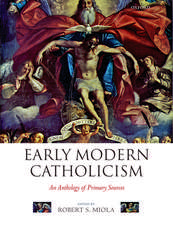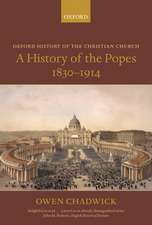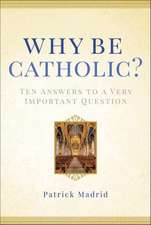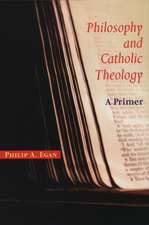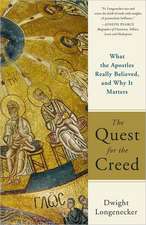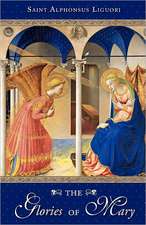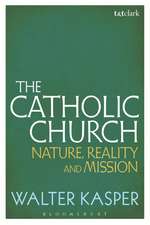From Penitence to Charity: Pious Women and the Catholic Reformation in Paris
Autor Barbara B. Diefendorfen Limba Engleză Paperback – 18 mai 2006
Preț: 181.93 lei
Preț vechi: 208.78 lei
-13% Nou
Puncte Express: 273
Preț estimativ în valută:
34.82€ • 36.07$ • 29.06£
34.82€ • 36.07$ • 29.06£
Carte tipărită la comandă
Livrare economică 10-17 martie
Preluare comenzi: 021 569.72.76
Specificații
ISBN-13: 9780195095838
ISBN-10: 0195095839
Pagini: 368
Ilustrații: 7 halftones
Dimensiuni: 229 x 152 x 23 mm
Greutate: 0.51 kg
Editura: Oxford University Press
Colecția OUP USA
Locul publicării:New York, United States
ISBN-10: 0195095839
Pagini: 368
Ilustrații: 7 halftones
Dimensiuni: 229 x 152 x 23 mm
Greutate: 0.51 kg
Editura: Oxford University Press
Colecția OUP USA
Locul publicării:New York, United States
Recenzii
"This book will be very significant for historians of early modern France and for scholars interested in the interactions of religion, gender, and culture."--Theological Studies
"The first achievement of this refreshing book is to return to the forefront of scholarly minds the forgotten and overshadowed Parisian women who drove Catholic revival in their city and beyond during and after the Wars of Religion."--The Journal of Ecclesiastical History
"To say that Barbara Diefendorf's third monograph is her most significant contribution is saying something indeed. From Penitence to Charity bears all the hallmarks of Diefendorf's fine scholarly hand: meticulous research, nuanced analysis, and narrative richness. It is, however, a more ambitious project, one that deftly weaves together gender, religion, economics, and politics to explain the spiritual renewal of the seventeenth century. In the process, Diefendorf rewrites the history of the Catholic Reformation in France, and, along with it, the spiritual life of women."--H-France Review
"[A] significant contribution to the larger story of the "feminization" of religion in France....It could be argued that the Catholic Reformation, instead of being a moment when men controlled and confined women, was a moment when some women imposed their vision of piety upon the church. Diefendorf has composed a very compelling and readable book that offers her audience an understanding of the changing meanings of piety in late sixteenth and early seventeeth-century France."--American Historical Review
"Diefendorf argues for the enormously positive role of women during the formative years of the Catholic Reformation. She makes her case eloquently and well. Without their collaboration, that Reformation would have been a much different thing."--The Catholic Historical Review
"The first achievement of this refreshing book is to return to the forefront of scholarly minds the forgotten and overshadowed Parisian women who drove Catholic revival in their city and beyond during and after the Wars of Religion."--The Journal of Ecclesiastical History
"To say that Barbara Diefendorf's third monograph is her most significant contribution is saying something indeed. From Penitence to Charity bears all the hallmarks of Diefendorf's fine scholarly hand: meticulous research, nuanced analysis, and narrative richness. It is, however, a more ambitious project, one that deftly weaves together gender, religion, economics, and politics to explain the spiritual renewal of the seventeenth century. In the process, Diefendorf rewrites the history of the Catholic Reformation in France, and, along with it, the spiritual life of women."--H-France Review
"[A] significant contribution to the larger story of the "feminization" of religion in France....It could be argued that the Catholic Reformation, instead of being a moment when men controlled and confined women, was a moment when some women imposed their vision of piety upon the church. Diefendorf has composed a very compelling and readable book that offers her audience an understanding of the changing meanings of piety in late sixteenth and early seventeeth-century France."--American Historical Review
"Diefendorf argues for the enormously positive role of women during the formative years of the Catholic Reformation. She makes her case eloquently and well. Without their collaboration, that Reformation would have been a much different thing."--The Catholic Historical Review

